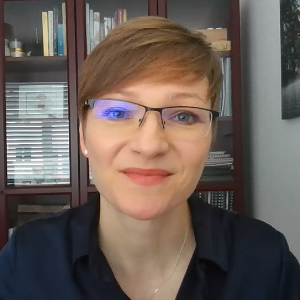BLOG: How studying student-led course in online, part-time MPH helped my work
Ania shares thoughts on how SLICC, a student-led course which is a part of online Master of Public Health programme, facilitated completing a work project and presenting its results at the European Congress on Obesity.

By Ania Gryka-MacPhail | Online part-time MPH Student
The Integrating Public Health Practice Student-Led Individually Crafted Course (SLICC) can be chosen as a part of the online MPH (part-time programme) instead of the final year's dissertation. It was a great option for me, as I have written a dissertation before, and this allowed me focusing on one of my work projects and applying what I have learned during the course in practice. It also allowed me undertaking four extra courses.
The project looked at the extent of promotions of unhealthy food and drink in an online shopping environment. It was a survey for which data was collected at two time points in 2020 allowing exploration of seasonal changes in promotions at the time when online grocery shopping was becoming very popular.
First benefit of MPH learning was the experience of reflexivity and skills of memoing developed during the Fieldwork Skills for Qualitative Social Research and Data Analysis in Qualitative Social Research courses. Although the project was quantitative, I set up a simple paper notebook in which I kept recording my thoughts, observations, and ideas all the way through the project, just as if it was qualitative work. I was surprised how useful it was at the report writing stage - most of thinking was already done.
Second, Systematic Reviews course that I took during the second year allowed me conducting a rapid evidence review, which gave background to this project. The review as well as the final project report are available on the website of my organisation. To make the report more digestible I wrote a blog about it. A press release and social media campaign on Twitter helped to publicise the findings.
I also submitted an abstract for the European Congress on Obesity happening on 10-13th May 2021. It was accepted as an e-poster and the abstract has been published in the Supplement to Obesity Facts 2021;14:1–154 (EP3-13, p97). Because the congress is an online only event, we have been asked to record a 2-minute video teaser about the poster to encourage attendees to read it and engage.
I am still to write a final assignment for the SLICC course, which is a self-reflective report on my experience and learning during the project. For me this is the most valuable aspect of the course. In everyday work there is rarely time to stop and reflect on completed tasks. Thanks to SLICC I learnt so much more from this project compared to other work projects.

